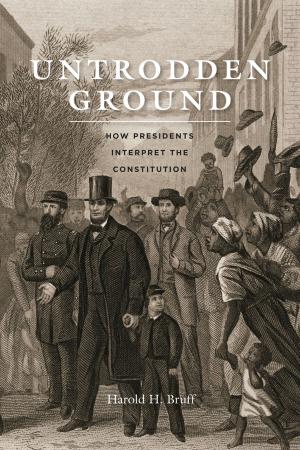| Author: | Mark Halliday | ISBN: | 9780226533629 |
| Publisher: | University of Chicago Press | Publication: | February 27, 2018 |
| Imprint: | University of Chicago Press | Language: | English |
| Author: | Mark Halliday |
| ISBN: | 9780226533629 |
| Publisher: | University of Chicago Press |
| Publication: | February 27, 2018 |
| Imprint: | University of Chicago Press |
| Language: | English |
We are all losing all the time. Four titanic forces—time, mortality, forgetting, and confusion—win victories over us each day. We all “know” this yet we keep dreaming of beautiful fulfillments, shapely culminations, devotions nobly sustained—in family life, in romance, in work, in citizenship. What obsesses Halliday in Losers Dream On is how to recognize reality without relinquishing the pleasure and creativity and courage of our dreaming.
Halliday’s poetry exploits the vast array of dictions, idioms, rhetorical maneuvers, and tones available to real-life speakers (including speakers talking to themselves). Often Halliday gives a poem to a speaker who is distressed, angry, confused, defensive, self-excusing, or driven by yearning, so that the poem may dramatize the speaker’s state of mind while also implying the poet’s ironic perspective on the speaker. Meanwhile, a few other poems (for instance “A Gender Theory” and “Thin White Shirts” and “First Wife” and “You Lament”) try to push beyond irony into earnestness and wholehearted declaration. The tension between irony and belief is the engine of Halliday’s poetry.
We are all losing all the time. Four titanic forces—time, mortality, forgetting, and confusion—win victories over us each day. We all “know” this yet we keep dreaming of beautiful fulfillments, shapely culminations, devotions nobly sustained—in family life, in romance, in work, in citizenship. What obsesses Halliday in Losers Dream On is how to recognize reality without relinquishing the pleasure and creativity and courage of our dreaming.
Halliday’s poetry exploits the vast array of dictions, idioms, rhetorical maneuvers, and tones available to real-life speakers (including speakers talking to themselves). Often Halliday gives a poem to a speaker who is distressed, angry, confused, defensive, self-excusing, or driven by yearning, so that the poem may dramatize the speaker’s state of mind while also implying the poet’s ironic perspective on the speaker. Meanwhile, a few other poems (for instance “A Gender Theory” and “Thin White Shirts” and “First Wife” and “You Lament”) try to push beyond irony into earnestness and wholehearted declaration. The tension between irony and belief is the engine of Halliday’s poetry.















